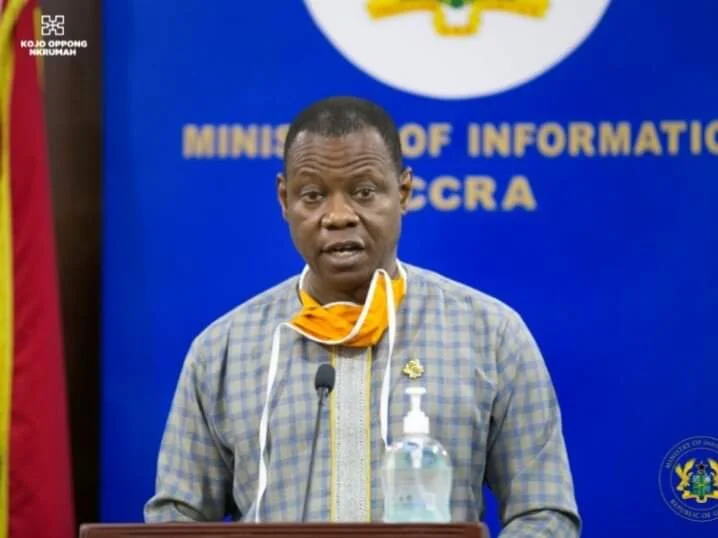The Ghana Health Service (GHS) has confirmed cases of cholera in the Ada West and Ada East districts of the Greater Accra region.
This recent health emergency underlines critical gaps in Ghana’s public health system, particularly regarding water, sanitation, and hygiene infrastructure. The GHS and its partners have acted quickly, but the wider context surrounding this outbreak demands deeper reflection on both immediate containment and long-term prevention strategies.
“The person presented to the health facility with vomiting, diarrhoea and abdominal pain a couple of days after attending a funeral in Ada East. Subsequently, Ada East District also reported confirmed cases of cholera.”
Dr. Kuma-Aboagye, Director-General of the GHS
The initial case according to Ghana Health Service (GHS) was reported on October 4, 2024, when a resident of Ada West presented at a health facility.
This situation marks the first significant outbreak of cholera in Ghana this year, and the Ghana Health Service, under the direction of Dr. Patrick Kuma-Aboagye, has acted swiftly and decisively in responding to this public health threat.
“As of 11th October, nine cholera cases had been confirmed in both districts (Ada West and Ada East),” the Ghana Health Service (GHS) stated in press statement issued by Dr. Kuma-Aboagye, Director-General of the GHS.
The Ghana Health Service, in collaboration with local authorities and national health partners, is working to contain the outbreak and prevent further spread.
However, the success of this response also depends on the public’s trust in the health system and their willingness to seek care early. Misinformation, which the GHS indicated its actively monitoring, can seriously hinder these efforts.
Misinformation and disinformation, especially during public health crises, can spread faster than the disease itself.
The press statement revealed that the GHS is proactively managing rumors through local media and community engagement. However, the fight against misinformation must also include digital platforms, where falsehoods about disease prevention and treatments can circulate unchecked.
Public Health Response

Dr. Kuma-Aboagye noted that in response to the outbreak, the GHS has activated several Public Health Emergency Management Committees (PHEMCs) at the national, regional, and district levels.
The committees are responsible for coordinating response efforts and ensuring that public health measures are implemented promptly.
“A joint multi-sectoral Public Health Emergency Rapid Response Team (PHERRT) has been deployed to the affected districts.
“The team comprises representatives from the GHS, the National Commission for Civic Education (NCCE), the Ghana Education Service (GES), the National Disaster Management Organisation (NADMO), and Environmental Health Units from Ada West and Ada East districts.”
Dr. Kuma-Aboagye, Director-General of the GHS
Dr. Kuma-Aboagye’s statement emphasized that these response activities are crucial for containing the outbreak and protecting public health.
In line with outbreak control measures, ongoing investigations and environmental assessments are being conducted to identify the source of the infection and assess the risk of further transmission.
Dr. Kuma-Aboagye assured the public that all health facilities across the country have been placed on high alert, with healthcare workers sensitized on cholera case definitions, sample management, and case management protocols.
To further curb the spread of the disease, daily active case searches are being conducted in affected communities. Health officials are tracing and following up with individuals who have come into contact with confirmed cholera cases, ensuring that potential cases are identified early and treated promptly.
The GHS has also enforced strict infection prevention and control practices in all healthcare facilities within the two affected districts. These measures are aimed at minimizing the risk of healthcare-associated infections and ensuring that facilities can manage cholera cases effectively.
Moreover, “A cholera oral re-hydration centre for cases with mild symptoms has been set up,” Dr. Kuma-Aboagye revealed.
Public education has become a key component of the GHS’s response strategy. According to Dr. Kuma-Aboagye, mobile vans have been deployed to the affected areas to disseminate information on cholera prevention, with an emphasis on safe drinking water, sanitation, and hygiene practices.
One of the most significant challenges in managing cholera outbreaks is ensuring access to clean drinking water and adequate sanitation.
“Access to potable water and environmental sanitation is being assessed, however, potable water is being distributed to affected districts. Water sampling for microbiology and culture from all affected districts is being conducted.”
Dr. Kuma-Aboagye, Director-General of the GHS
The GHS urged residents in the affected districts and across the country to remain vigilant and adhere to preventive measures, particularly in relation to personal hygiene, water safety, and environmental cleanliness. Cholera is a highly preventable disease, and the public’s cooperation is essential in preventing further transmission.
READ ALSO: Israel Vows To Mercilessly Strike Hezbollah After Drone Attack



















